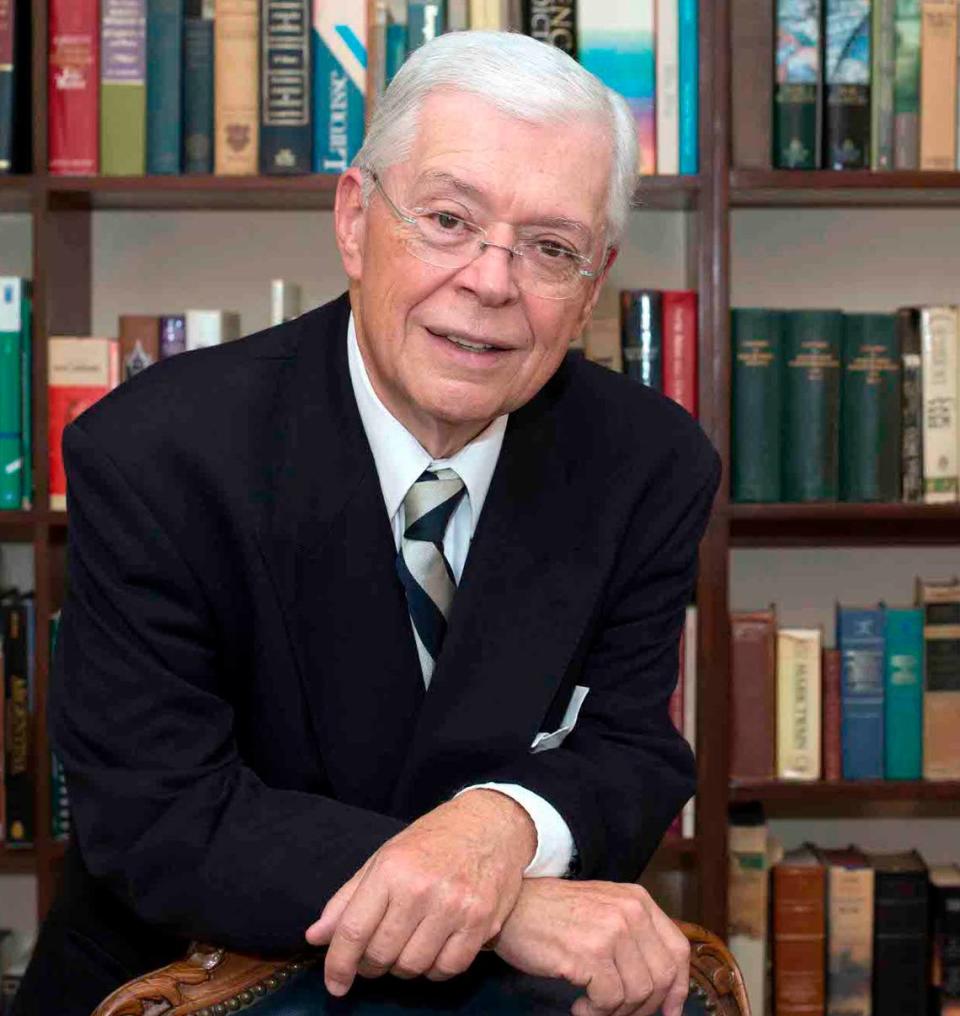Ortega regime is snuffing out what little remains of Nicaragua’s democracy | Opinion
- Oops!Something went wrong.Please try again later.
- Oops!Something went wrong.Please try again later.
I arrived at Dulles Airport on Feb. 9, along with 221 others aboard a “freedom flight” chartered by the U.S. government to fly us out of Nicaragua. We all had been incarcerated in Nicaragua’s infamous El Chipote Prison, accused of treason for allegedly trying to overthrow the government of Daniel Ortega and of his vice president, Rosario Murillo, who is his wife.
All of us had been tried and found guilty by kangaroo courts, even though none of us was guilty of the charge. I was sentenced to eight years of prison over and above the 18 months I had already served. But we got off easy compared to the more than 330 Nicaraguans killed and the thousands more wounded by riot police during massive, peaceful marches against the regime.
Since February, the Ortega-Murillo dictatorship has stripped us of our Nicaraguan citizenship, which is constitutionally forbidden, and confiscated our assets. In my case, my home and a small farm that I owned have been seized.
What is the state of affairs in Nicaragua today?
Politically, the regime ruthlessly continues to snuff out what little remains of democracy, civil society and the rule of law. In the process, it has dismantled decades of nation-building. For instance, it has confiscated the assets of La Prensa, Nicaragua’s newspaper of record, as well as those of the two most prestigious institutions of higher learning in Nicaragua.
One is the INCAE, Latin America’s premier business school founded in 1963 with the support of the Harvard Business School. The other is the UCA, a private Jesuit university, considered the country’s best.
The regime also closed down most of the country’s NGOs, kneecapping civil society. I was president of one of the NGOs, the local chapter of the Knights of Malta. We raised about $12 million annually in medicine and hospital and educational supplies — such as desks and wheelchairs — and distributed them to the neediest people, regardless of political affiliation.
The dictatorship has also declared war on the Catholic Church. The papal nuncio — the equivalent of the Vatican’s ambassador in a country — was forced out of Nicaragua in 2022, making it the only the country in the Western Hemisphere without diplomatic ties with the Holy See. Ortega and Murillo also expelled one of Nicaragua’s bishops and has jailed another. They also expelled the Jesuits from Nicaragua and even forced into exile the nuns of Mother Teresa’s order, who dedicated their lives to fighting poverty among Nicaragua’s most destitute.
In economic matters, the dictatorship has reverted to socialism, has a well-deserved reputation for corruption and has demolished the country’s investment climate. This was predictable. Ortega, who has been in power for 28 years in total and consecutively for the past 17 years, has always opposed the private sector and the market economy. According to the U.S. International Trade Administration, Nicaragua is the the second poorest country in the Western Hemisphere with, in 2021, a GDP per capita of approximately $2,100.
Nicaragua’s devastating poverty and political intolerance explains why more than half a million Nicaraguans live in neighboring Costa Rica — even as a record number of Nicaraguan refugees are turning up at America’s southern border. In 2022, 165,000 Nicaraguans crossed into the United States, a 52-fold increase over 2020.
Ortega is an avowed enemy of the United States. He refers to it, despicably, as the “empire” and has refused to accept a U.S. ambassador to Managua. This despite the fact that the United States, by far, is Nicaragua’s largest trading partner. Moreover, according to the U.S. State Department, nearly 20% of the $3.2 billion in remittances that Nicaraguans send home annually comes from the United States.
The Ortega regime also has poor relations with Latin American democrats and the European Union, especially Spain. Ortega frequently criticizes Chile’s president, Gabriel Boric, no doubt because the young Chilean head of state, a socialist, has lamented the lack of democracy in Nicaragua.
Who, then, are Nicaragua’s friends? Not surprisingly the usual suspects: China, Cuba, Venezuela, Iran and North Korea. This helps explain why Nicaragua was the only Latin American country to vote against the recent U.N. General Assembly resolution calling upon Russia to withdraw from Ukraine.
This is the sad state of affairs in Nicaragua.
Francisco Aguirre-Sacasa is Nicaragua’s former foreign minister and ambassador to the United States. He also was director of external affairs for the World Bank, where he worked for 28 years.


